The Texas Accountability System comprises three parts or Domains: Domain 1: Academic Achievement, Domain 2: School Progress, and Domain 3: Closing the Gaps. 70% of the overall grade comes from the better of Domain 1 or 2. 30% comes from Domain 3. Let’s take a closer look at Domain 2.
Two Parts of Domain 2
Domain 2: School Progress has two parts: Academic Growth and Relative Performance. Academic Growth is measured by whether students made one year of growth from the prior year to the current year.
Two transition tables measure Growth. One table calculates annual growth from the prior year to the current year, and the second table calculates HB 4545, or the accelerated learning component. For Academic Growth, only reading and math are evaluated. For accelerated students, there is still growth calculation. To illustrate, a student who goes from grade 6 math to grade 8 math would still have growth calculated.
Part A: Academic Growth
The annual growth transition table shown below includes the expanded STAAR performance levels, followed by an example transition table. In this table, if the student had a High Did Not Meet Grade Level in the prior year, and earned a Low Approaches Grade Level in the current year, that would equal one growth point.
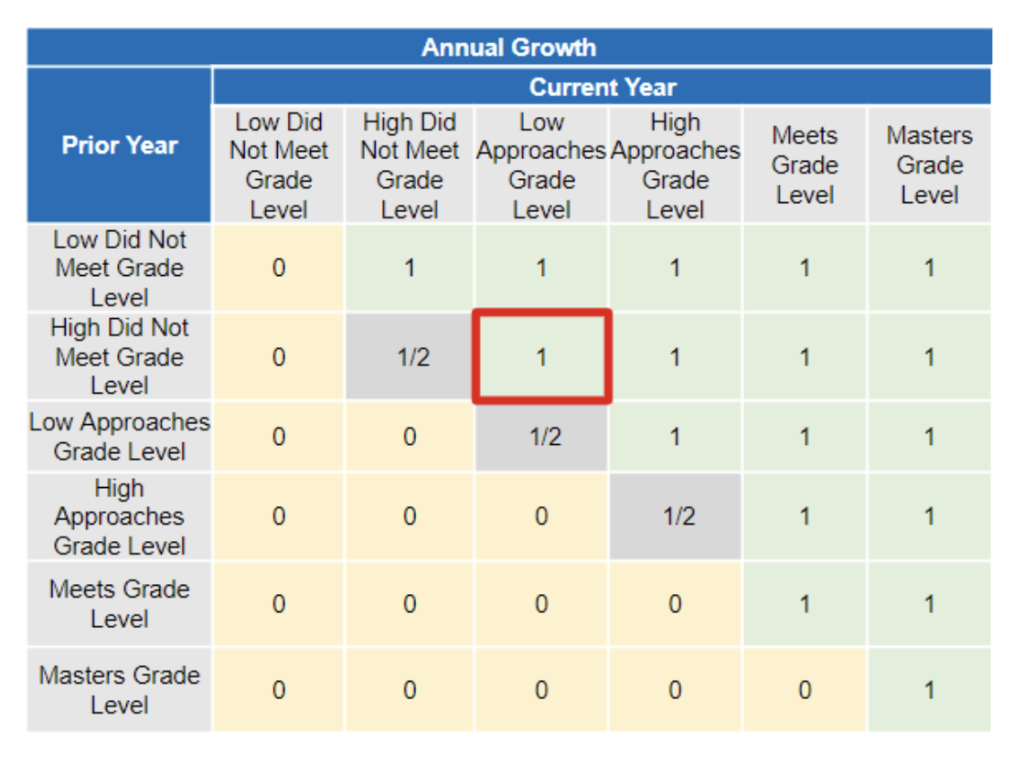
In this example, a total of 554 assessments were given, which earned 435 growth points.
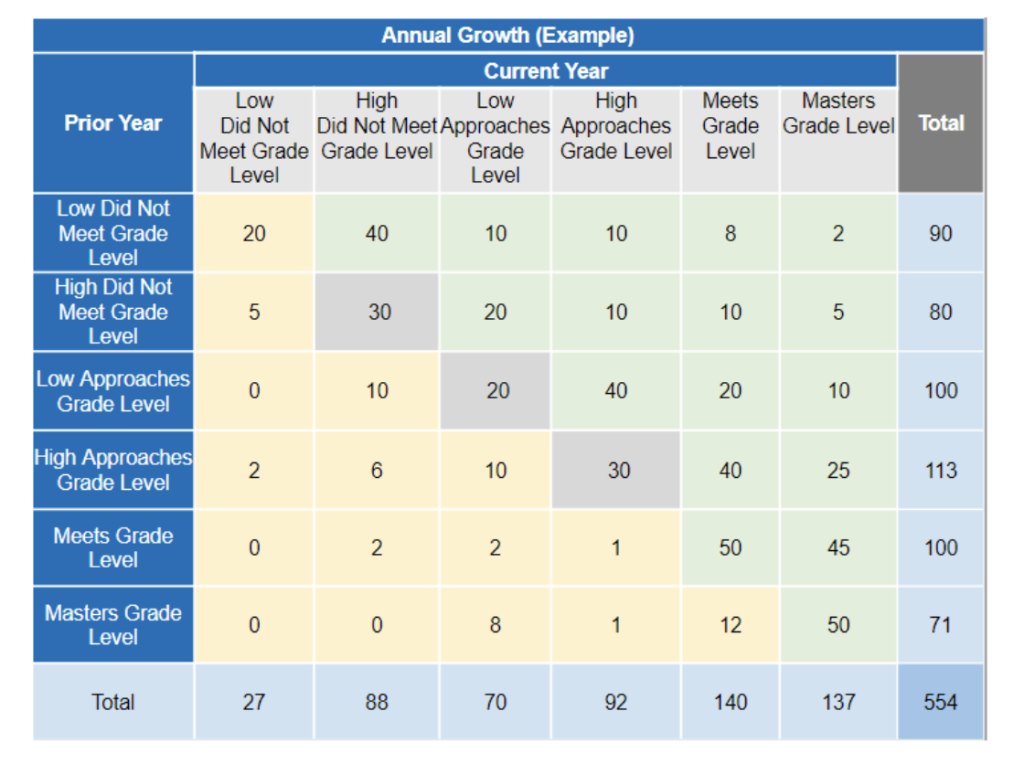
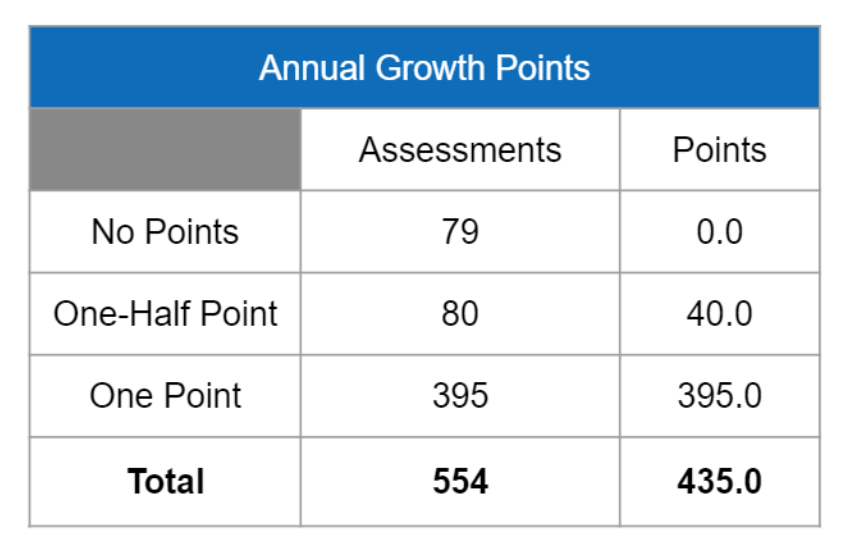
Next, let’s look at the Accelerated Learning Table. The calculation for determining bonus points for Accelerated Learning takes the number of students that Did Not Meet Grade Level in the prior year and then earned either Approaches, Meets, or Masters in the current year.
That number is multiplied by 0.25 for the total number of Accelerated Bonus Points.
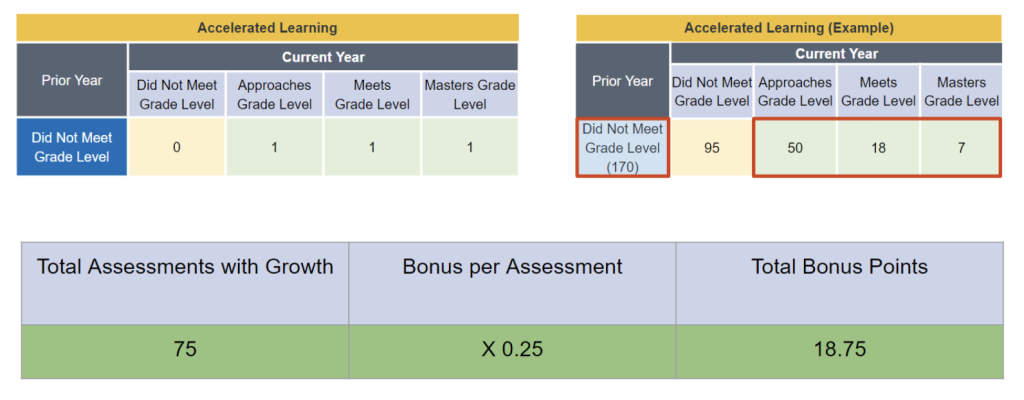
Using the tables above, we can see an example of the Academic Growth calculation here, including the final Raw Score, as well as the scaled score from the Raw Score conversion table in the Accountability Manual.
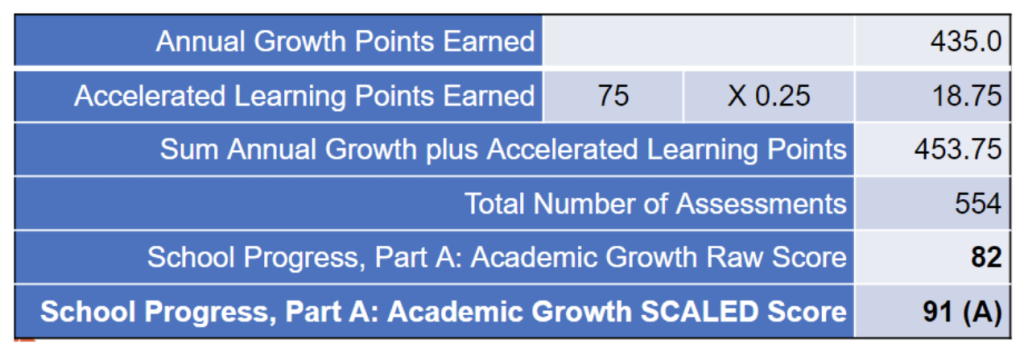
Part B: Relative Performance
Relative Performance measures the achievement of all students relative to campuses with similar economically disadvantaged percentages, as reported in the TSDS PEIMS October snapshot.
For elementary and middle schools, School Progress, part B evaluates the overall student performance on the Student Achievement STAAR component. For high schools and K-12 campuses, School Progress Part B evaluates the Student Achievement STAAR and CCMR components.
Here is an example (for illustrative purposes only) of what that might look like:
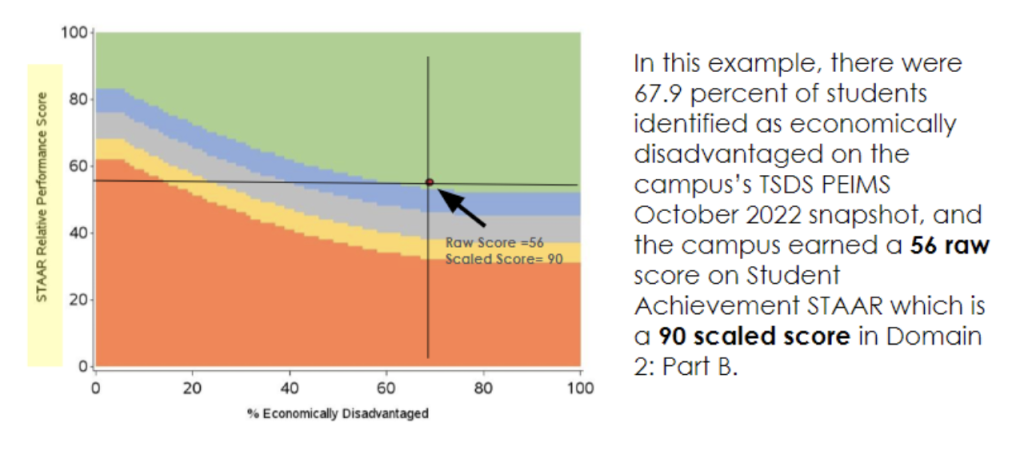
Determining the Score
The final piece of the puzzle is determining the overall score for Domain 2. Again, we take the higher of Part A and Part B, as seen in the example below. In this case, Part A: Academic Growth, with a scaled score of 91, is the higher of the two and would be the overall Domain 2: School Progress rating.
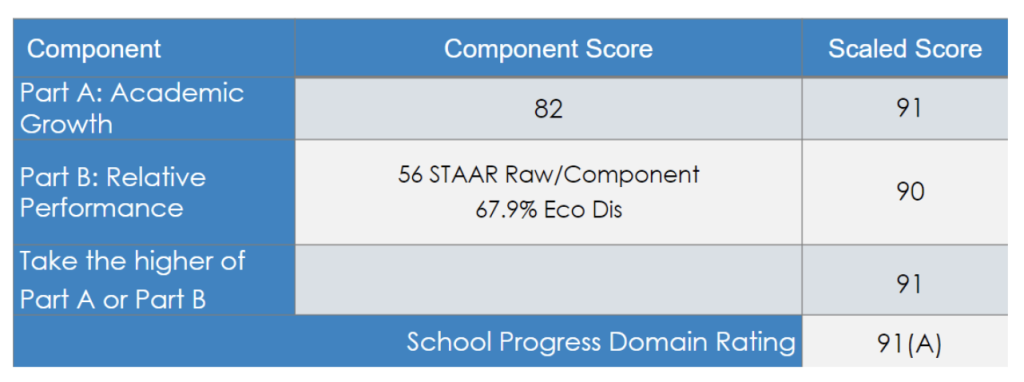
Conclusion
Navigating and understanding the A-F Accountability System can seem daunting. Digesting new information in bite-sized chunks helps. This blog discusses the basics for calculating Domain 2: School Progress – Part A: Academic Growth and Part B: Relative Performance. Read more accountability blogs here.
Stay up-to-date on the latest changes in accountability by subscribing to our weekly newsletter.
For more information on accountability or to talk about custom professional development tailored to your campus or district, contact us.
Rick is an Administrative Specialist of Data Systems and Accountability here at the Education Service Center Region 13.






Add comment